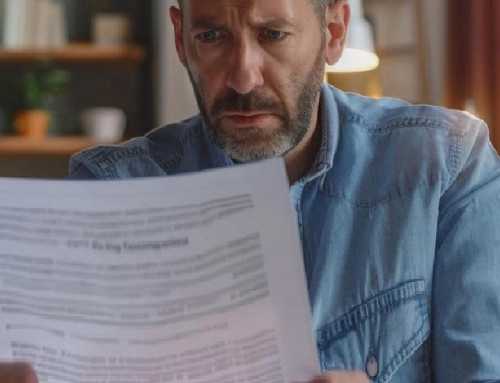Credit Management and Collection Tips

When a Customer Defaults
You know the scenario. A customer who pays typically on time begins paying late. Soon they are ignoring the terms they agreed to, and the past due amount is piling up. They are slipping from being a paying customer to problem customer, an unfortunate continuum known all too well to those in the commercial credit and collection industry. How should you proceed when you reach this point? How do you prevent reaching this point at all?
Have a Solid Foundation
A signed credit application is your first line of defense for preventing financial loss due to non-payment. Any commercial customer requesting to buy on credit should be required to sign one. The application is where you set the terms for sale and the consequences for breaking them. Be specific on it:
- What data do you need from them to extend credit?
- How will they pay?
- Who are their references, and do they check out?
- What are the penalties for failing to pay?
Having this information from the beginning of the relationship gives your company added leverage and protection. It can also be a deterrent to payment default, but unfortunately, it cannot eliminate all risk.
Signs of Trouble Ahead
When you begin to suspect a customer is moving down the line toward defaulting on their account, look for indicators to confirm this. Some signs may be:
- Breaking terms of sale with no communication.
- Failing to keep promises.
- Bringing up a dispute after payment is already late.
- Experiencing sudden high turnover in the accounts payable department.
Any one of these is an alert something may be amiss. Maybe they have financial issues, are waiting for payment themselves, or have no intention to pay. Whatever the case may be, these actions progress them in the direction of defaulting on their account.
Attempt to Resolve
That said, your first contact with the customer after a negative development is still likely going to be a customer service-oriented moment. You want to keep them as a customer, if at all possible. This is a time to gather more information about their situation and why they are not forthcoming with payment. Remind them of the terms they agreed to on the credit application. Accumulating as much data as possible will help you later on if the account needs to be escalated to a third party.
After talking with them, you may offer favorable payment arrangements or accept a post-dated check. Going above and beyond to show you value them as a customer. Just make sure you are the one setting the terms in this scenario. You determine what payments are made and when, so payments don’t extend indefinitely.
A Change in Attitude
If these efforts don’t lead to payment, or if a payment is returned due to non sufficient funds, it is time to escalate further. Now is an excellent time to ask them to sign a personal guarantee if you have not already. If they insist everything is good, then they should have no problem signing. If not, it’s another signal that things are not right.
At this point your customer is in default and your attitude toward them needs to change to reflect the severity of this issue. Have this moment distinguished in your internal policies and procedures so you know exactly when they cross the line. You may need to decide if you still want them as a customer, or can afford to keep them as a customer.
Increase Pressure
Cut off product delivery if you have not yet already and look for your best option to recover funds. Stopping product may jolt them to payment, but if not, some of the options you still have at this point are:
- Accepting returned product.
- Working out a settlement.
- Filing UCC claims if you have a prior agreement.
If you write the amount off, you can also file an IRS 1099 form for your customer. This would require them to list the unpaid amount as income and could cause them an issue with the IRS down the road. Unfortunately, it would not require them to pay you.
Escalation
If a resolution is not in sight, now is a good time to turn the matter over to a third-party collection agency. A professional collector will try to solve the original question of why your customer is not paying. They establish communication through calls, letters and email to resolve the issue. At the same time, they investigate to confirm critical facts, such as:
- If the business is open and operating.
- Do they have assets?
- Identifying liens or legal action against them.
- Are other vendors being paid?
- Are they at all willing to negotiate payment?
They will report all relevant information. You will have the final say on payment arrangements or other consequential decisions.
But be aware: Receivables are not like fine wines. They do not get better with time. In fact, one credit industry study showed that the collectability of debt dropped from 94% at the due date to only 9% two years later. It is vital to collect payment early, either through your in-house policies or by involving a third-party collection agency once it’s past due.
The Final Measure
If all else fails, and the customer is still operating with assets, the collector may recommend pursuing the debt through litigation. This would include involving an attorney to file suit for the amount due. Obtaining a judgment against the customer does not necessarily equal payment. Some of these cases are resolved once the customer is served and never go to court. But in general, litigation is a lengthy and costly process that should be viewed as a last resort only for accounts of significant value.
A Fundamental Risk
Unfortunately, there is no magic bullet to eliminate the risk inherent in extending credit. Unless you purchase debt insurance or factor the debt, when you offer customers credit there is the risk of financial loss. The suggestions in this article can help mitigate the risk by preventing customers from defaulting and recovering from them if they do.
Do you have clients progressing toward default? Are you questioning your credit policies? BARR Credit Services can help. We can assist in strengthening your accounts receivable processes drawing from our wide range of credit industry experience. Contact us today.
By Ed Bessenbacher
Based on a webinar given by Randy Frazee,
Chief Executive Officer of BARR Credit Services
Ed is a freelance writer and former collector based in Chicago, Il.
Email: ebessenbacher@gmail.com





